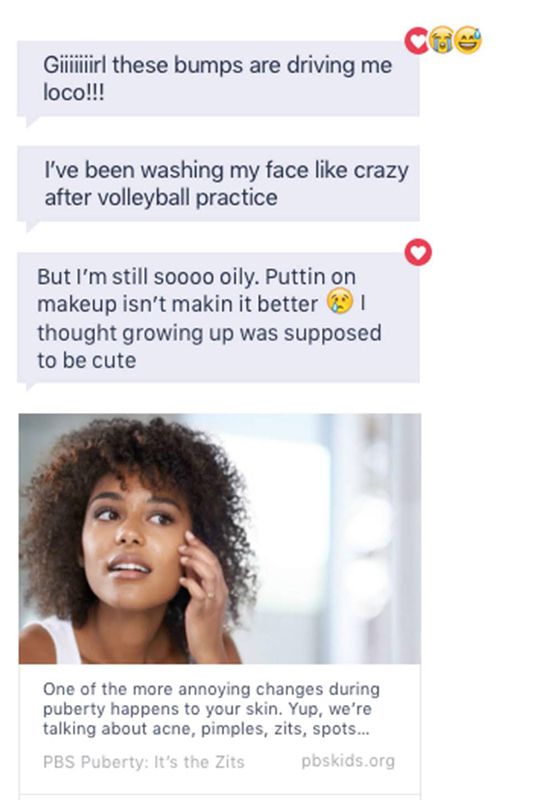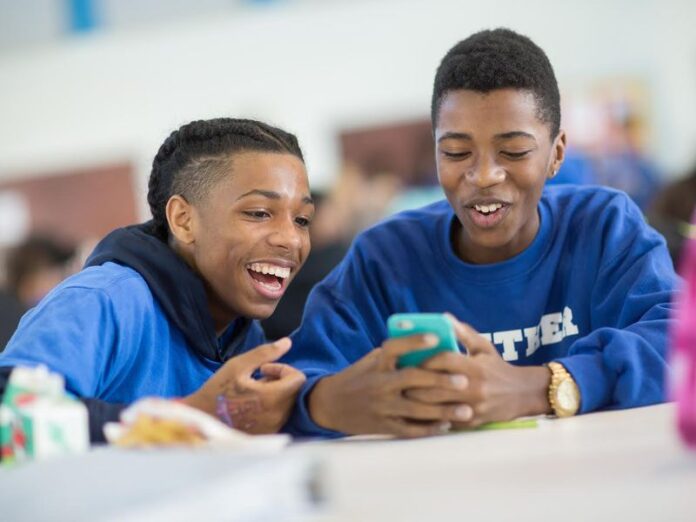By: Emily Matchar
Publisher: Smithsonian Mag
Date: May 15 2017
It was a long way from Princeton. After graduating from the Ivy League school, Vichi Jagannathan and Liz Chen both wanted to give back by teaching. So they joined Teach for America, the program that places talented graduates in low-income schools around the country. They found themselves placed in adjacent classrooms in a high school in rural Eastern North Carolina.
Here, Jagannathan and Chen both had the experience of seeing students struggle with unplanned pregnancies at as young as 15 or 16. They wondered why: was it a lack of health education? Could something be done about it?
“Vichi and I talked to students and realized that health was not a huge priority in the school; it came second to physical education,” says Chen, who is now in a PhD program in health behavior at the University of North Carolina at Chapel Hill.
There were health classes, but teachers didn’t necessarily have good resources like prepared lesson plans and PowerPoints to use. And even when the teachers in the area did have resources, they often felt ill at ease discussing certain aspects of sex and sexuality openly.
“Some of them didn’t feel comfortable answering questions, or discussing topics, potentially because of their religious affiliation,” Chen says.
So Chen and Jagannathan—and later a third woman, Cristina Leos—decided to create a resource that could speak directly to students. That tool became Real Talk, a sexual education app that uses real teenagers’ stories to address questions about sex, puberty, gender, relationships and more. The project has received a $325,000 grant from the U.S. Department of Health and Human Services’ Office of Adolescent Health, and an additional $25,000 in funding from a student entrepreneurship prize at Yale, where Jagannathan is completing an MBA.
While the app was originally intended for high schoolers, the women realized that many of the teens they were talking to began having sex before 9th grade. So they decided to target the app to middle schoolers instead. To design Real Talk, they spoke with more than 300 students in North Carolina, Texas, Connecticut and elsewhere, conducting long interviews, doing group sessions, and soliciting real life stories about the kind of things most people, teens and adults alike, feel awkward talking about. Not surprisingly, they found that, even in schools with comprehensive sex ed, students still had questions.
“We got the sense that not all of them are comfortable talking about the topic of sex ed in school, which could be for a number of reasons—they’re around their peers, they don’t want other people to know their questions,” Jagannathan says.
They also realized that it was important that students feel the source of information was credible—and to them, that often meant it came from a peer who had been through an experience themselves. They also wanted that story to be written in an authentic way, which meant plenty of slang and emojis. Teenagers, for instance, often use fruit and vegetable symbols to represent genitalia, a fact perhaps not known to most adults.

(Real Talk)
“Once we started developing the idea of sharing experiences, we learned that stories are a really engaging way to get middle school students to listen and be curious,” says Leos, who is in the same PhD program as Chen. “There’s a lot of development science research that shows that facts and statistics are pretty difficult for teen brains to recall, particularly when they’re in situations of high emotional arousal. But stories are easier to recall.”
Using the app, teens can select their topic of interest and read a text interaction between real teens dicussing the subject at hand—acne, say, or wet dreams. The story will link to factual information from reliable sources, so teens can learn more.
The team says many of the students they interviewed were actually less interested in traditional sex ed topics like pregnancy and how to avoid STIs, and were more interested in puberty and hearing about other peoples’ experiences with things like embarrassingly timed erections.
Students were also “surprisingly both comfortable with and interested in speaking about gender identity and gender fluidity,” Jagannathan says. They wanted to have the option to read stories from real teens of various genders, including genders beyond the traditional male/female binary.
“It’s been refreshing and very surprising to have that pressure from our users,” Jagannathan says.
Some of the stories featured on the app are from students that Chen, Jagannathan and Leos met in person, but many came from an ad placed on Instagram asking for teens to share about their sexual health questions and experiences. The team plans to use Instagram as a key part of their marketing strategy for the app, which they hope to have in iTunes by early next year.
“Over 90 percent of the teens we worked with check Instagram every single day,” Jagannathan says.
The team also plans to offer Real Talk to sex ed teachers and other educators, who can share it with students. While there’s no lack of high quality sex ed websites aimed at teens, the team hopes having an app will make the information more accessible to rural students and students of color, some of whom may not have reliable internet access at home. They can use their school’s wifi to get the app, which comes with some stories loaded to be read without an internet connection. While it’s not the only sexual health app for teens on the market, its storytelling format gives it a unique edge.
Real Talk’s founders plan to assess the app’s efficacy by looking to see if using it makes teens more likely to understand various sexual health topics, or if it makes them more likely to speak openly with trusted adults about these topics. Ultimately they would like the app to have real-world effects such as reducing the teen pregnancy rate.
Teen pregnancy rates have been declining for some 20 years—in 2014, there were fewer than 25 births for every 1,000 females between 15 and 19, a decline of 9 percent from the previous year. Interventions like Real Talk can help ensure that rate stays low, or perhaps drops even further, said the judges who awarded the team the government grant.
“These interventions will help ensure that this important national success story continues,” said Lawrence Swiader, vice president of digital media at The National Campaign to Prevent Teen and Unplanned Pregnancy, in a press release.
But reducing teen pregnancy is not the only important thing. Learning about sex and relationships can potentially teach a number of self-care and interpersonal skills too.
“Since we’re focusing on such a young age group, really one of the best things for us is to help middle school students develop some foundational skills that will improve a variety of other behaviors and outcomes,” Leos says.
Source: https://www.smithsonianmag.com/innovation/app-bring-sex-ed-all-students-180963275/
Comment: I think this article does a nice job of discussing innovation in the area of promoting sexual education to teens through the lens of other teens. This provides lots of younger folks with credible information curated by specialists told through a digestible lens. App integration is also an interesting aspect this project takes on. I chose this article, because I believe that
Comment: I think this article does a nice job of discussing innovation in the area of promoting sexual education to teens through the perspective of other teens. This provides lots of younger folks with credible information curated by specialists told through a digestible lens. App integration is also an interesting aspect this project takes on. I chose this article, because I believe that the innovative ways Chen, Jagannathan, and Cristina are teaching sexual education are inspiring and informative on how to actually reach the minds of teens.





I like the idea of using actual stories in text format to answer questions teenagers would have. Having a reliable platform on the app could help teens to ask the questions they’re uncomfortable to talk about.
I downloaded the app and went through some of the posts. It seems like right now the topics are not limited to sex related issues but also some common anxieties among teens. The users can also submit their own stories under weekly story topics and receive reactions (5 emojis expressing different feelings) from other users. Something I noticed is that sometimes the expert resources at the end of the story isn’t completely aligned with the story that was told and I’m not sure if you would receive any sort of help once you submitted your story. The search is fairly useful but there is no quick access to common topics, the categories they have are also quite broad. Also, you’ll be able to see how many reactions you received on your story, I’m not sure if this is a good way to do.
Since this app is still running, I’m curious how teens think about it and if it is more effective than other anonymous platforms.
Hi, I agree with Sherry the notion of stories as a way to engage with people rather than facts is a good insight to have especially moving forward towards concept development.